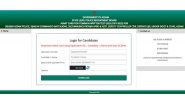Washington D.C. [USA], May 24 (ANI): President Donald Trump's last attempt to block travel from Europe in March triggered chaos and a surge of coronavirus-exposed passengers into the cities and suburbs across the United States that went unchecked for weeks and lead to an increase in infection rate in the country, a report published in The Washington Post said.
"To keep new cases from entering our shores," Trump said in an Oval Office address on March 11, "we will be suspending all travel from Europe to the United States for the next 30 days."
As per the WaPo report, epidemiologists contend that Covid-19 outbreak in the US was driven overwhelmingly by viral strains from Europe rather than China. More than 1.8 million travelers had entered the country from Europe in February alone as that continent became the centre of the pandemic. Infections reached critical mass in New York and other cities well before the White House took action, according to studies mapping the virus's spread. The crush of travellers triggered by Trump's announcement only added to that viral load.
"We closed the front door with the China travel ban," New York Gov. Andrew M. Cuomo (D) said last month as officials began to grasp the magnitude of the failure. In waiting to cut off travel from Europe, he said, "we left the back door wide open."
Also Read | Taliban Announces 3-Day Ceasefire in Afghanistan on Occasion of Eid-ul-Fitr 2020.
Trump has repeatedly touted his decision in January to restrict travel from China as evidence that he acted decisively to contain the coronavirus, often claiming that doing so saved more than a million lives. But it was his administration's response to the threat from Europe that proved more consequential to the majority of the more than 94,000 people who have died and the 1.6 million now infected in the United States, the report stated.
The travel ban was triggered by many of the same problems, such as missing or ignoring early warnings, chaotic coordination and undermining the administration's covid-related plans, which plagued the US' response to the pandemic from the outset.
The decision came at a time when the country was still resisting other measures critical to containing the outbreak. Schools remained open, states were not yet issuing stay-at-home orders, and many officials were still emphasising hand-washing as an adequate means of preventing infection.
The lack of urgency was driven by a failure to understand the threat's true dimensions. There were only 3,714 confirmed cases in the United States on March 13, the day the travel restrictions were implemented, and just 176 deaths had been recorded. Those numbers are considered woefully inaccurate, artificially suppressed by the scarcity of tests.
Within days, Trump would assert that he grasped the full magnitude of the danger soon after the virus escaped Wuhan, China. "I felt it was a pandemic long before it was called a pandemic," he said on March 17.
Yet Trump spent much of the preceding month predicting the virus would quickly recede and downplaying its severity. "It will go away," he declared on March 10, one day before his address from the Oval Office. "Just stay calm. It will go away."
However, after the announcement of the travel ban across the Atlantic, the number of passengers arriving from countries targeted by the restrictions soared 46 per cent in a single day, up from about 31,000 on the day Trump delivered his address to 45,399 the next, according to data from Customs and Border Protection.
But by mid-February, European strains were established in New York, where they multiplied in the city's crowded streets and subways before fanning out to the rest of the country, according to findings released by Trevor Bedford, a professor of epidemiology at the University of Washington.
The virus then continued crossing the Atlantic -- probably in both directions -- for weeks before the Trump administration acted. In February alone, more than 1.8 million air travellers from Europe entered the United States, according to the Bureau of Transportation Statistics. Those travellers wouldn't have faced even a temperature check.
An April study led by researchers at Northeastern University in Boston concluded that New York probably had more than 10,000 undetected cases by March 1 -- two weeks before the Europe restrictions were imposed -- with thousands of more cases in San Francisco, Chicago and other cities. (ANI)
(This is an unedited and auto-generated story from Syndicated News feed, LatestLY Staff may not have modified or edited the content body)













 Quickly
Quickly





















